Welcome to the essential guide for medicine cats, exploring the world of herbs in the Warrior Cats universe․ Discover natural remedies, healing properties, and safe practices for treating wounds and illnesses, ensuring the well-being of your Clanmates․ This guide covers everything from common herbs like chamomile and dandelion to dangerous plants like deathberries, providing a comprehensive resource for both new and experienced medicine cats․
1․1 Overview of Herbs in the Warrior Cats Universe
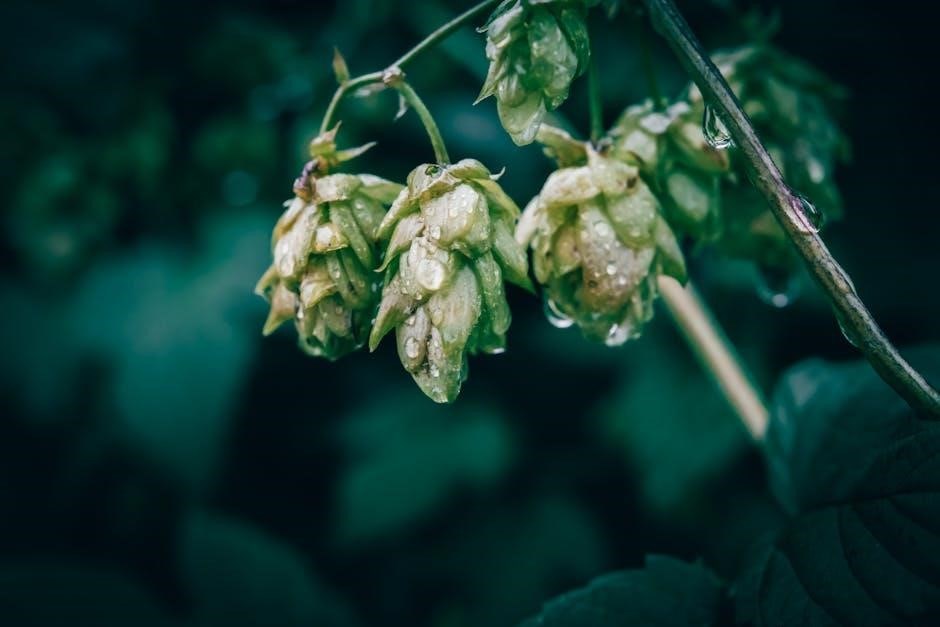
Herbs play a vital role in the Warrior Cats world, serving as natural remedies for various ailments and injuries․ Medicine cats, skilled in their knowledge, use plants like catmint, chamomile, and dandelion to treat conditions such as greencough, anxiety, and digestive issues․ These herbs are often combined in specific mixtures to enhance their effectiveness․ However, dangerous plants like deathberries and yewberries pose significant risks, emphasizing the importance of proper identification․ Herbs are not only used for healing but also for strength and endurance, making them essential for Clan survival․ Understanding their properties and uses is crucial for any aspiring medicine cat․
1․2 The Role of Medicine Cats in Herb Usage
Medicine cats are the guardians of herbal knowledge, using their expertise to heal wounds, treat illnesses, and prevent infections․ They identify and gather safe herbs, avoiding toxic plants like deathberries and yewberries․ By creating remedies such as poultices and infusions, they ensure their Clan’s health and longevity․ Medicine cats also prepare traveling mixtures to boost strength and endurance, crucial for hunting and battles․ Their role is vital, combining wisdom, observation, and skill to protect and care for their Clanmates, ensuring the survival and prosperity of their community․
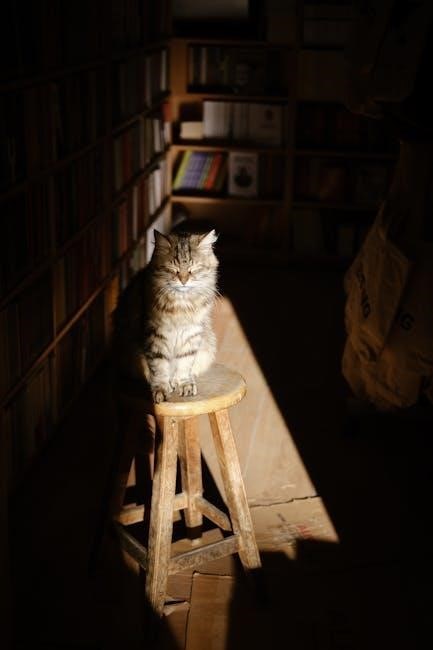
Common Herbs Used by Medicine Cats
Medicine cats rely on herbs like catmint, chamomile, dandelion, and plantain to treat wounds, calm nerves, and aid digestion, ensuring their Clan’s health and vitality․
2․1 Catmint: Uses and Benefits
Catmint is a versatile herb widely used by medicine cats to treat coughs, such as greencough and whitecough․ Its calming properties help soothe nervous or anxious cats, while its antiseptic qualities aid in reducing fever․ Often combined with other herbs like thyme, catmint is particularly effective in easing respiratory issues and promoting relaxation․ Medicine cats value it for its ability to comfort cats during illness and stress, making it a staple in their herbal remedies․ Its widespread availability in the wild ensures it remains a key component in Clan medicine․
2․2 Chamomile: Calming Properties and Applications
Chamomile is a soothing herb cherished by medicine cats for its calming effects․ It is often used to treat anxiety, nervousness, and stress in cats․ Chamomile’s mild sedative properties make it ideal for cats experiencing shock or agitation․ Additionally, it can be combined with other herbs like burnet or daisy leaves to create traveling mixtures, providing strength and endurance during long journeys․ Medicine cats also use chamomile to ease digestive issues and promote relaxation, ensuring their Clanmates remain calm and healthy․ Its gentle nature makes it suitable for queens and kits, further solidifying its importance in Clan herbal remedies․
2․3 Dandelion: Purification and Digestive Aid

Dandelion is a versatile herb renowned for its purifying and digestive benefits․ Medicine cats use it to cleanse the body of toxins, aiding in purification and detoxification․ Its mild diuretic properties help cats eliminate harmful substances, making it effective for treating digestive issues like bloating or indigestion․ Dandelion also supports liver and kidney function, promoting overall health․ Fresh leaves are often chewed and eaten, while the roots can be dried for later use․ This herb is especially useful for cats recovering from illness or injury, as it helps restore balance and vitality, ensuring a swift return to strength and agility within the Clan․
2․4 Plantain: Wound Healing and Skin Soothing
Plantain is a highly valued herb for its exceptional wound-healing and skin-soothing properties; Medicine cats use it to treat cuts, scratches, and burns, as it accelerates healing and reduces the risk of infection․ The leaves contain antimicrobial compounds that prevent bacteria from entering wounds, making it ideal for maintaining clean injuries․ Plantain also soothes irritated skin, providing relief from itching and inflammation caused by bites or rashes․ Fresh leaves are typically chewed and applied as a poultice, ensuring direct contact with the affected area․ This herb is indispensable for medicine cats, offering reliable and effective solutions for various skin-related ailments within the Clan․
Poisonous Herbs to Avoid
Deathberries, yewberries, and nightseeds are highly toxic to cats, causing severe illness or death․ Medicine cats must recognize these dangers to prevent fatal outcomes in their Clanmates․
3․1 Deathberries: The Dangers and Consequences
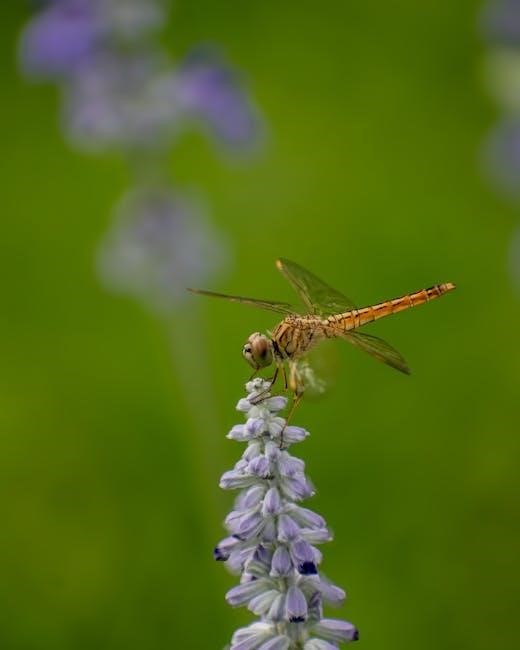
Deathberries are highly toxic and deadly to cats, even in small quantities․ Consuming them can lead to severe poisoning, organ failure, and death․ Medicine cats must avoid these berries at all costs, as they offer no medicinal benefits and pose extreme risks․ Recognition is crucial; deathberries are typically shiny and red or black․ Accidental ingestion requires immediate treatment, though outcomes are often fatal․ Their danger cannot be overstated, making them a critical herb to identify and avoid in the Warrior Cats world․
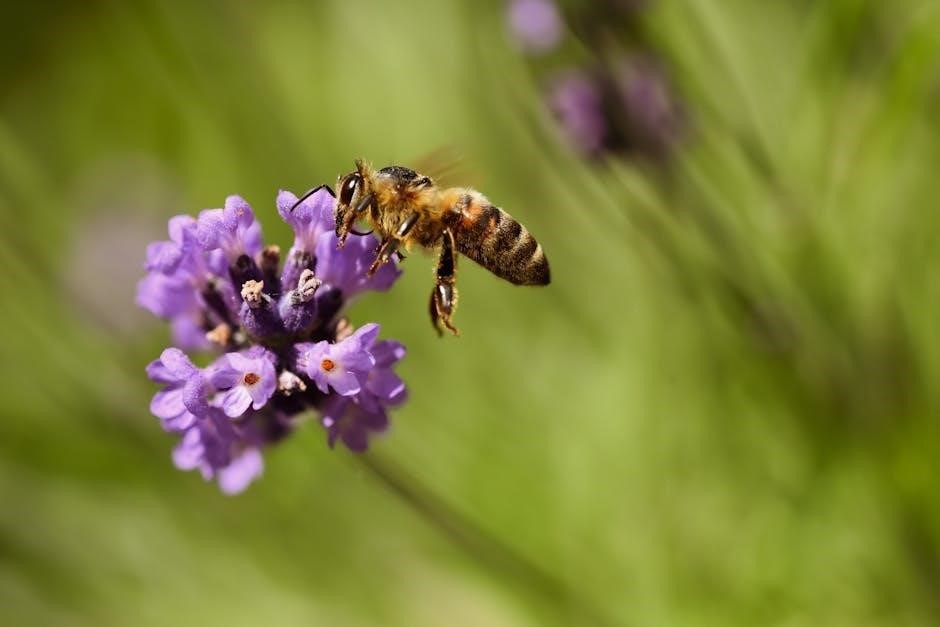
3․2 Yewberries: Toxicity and Risks
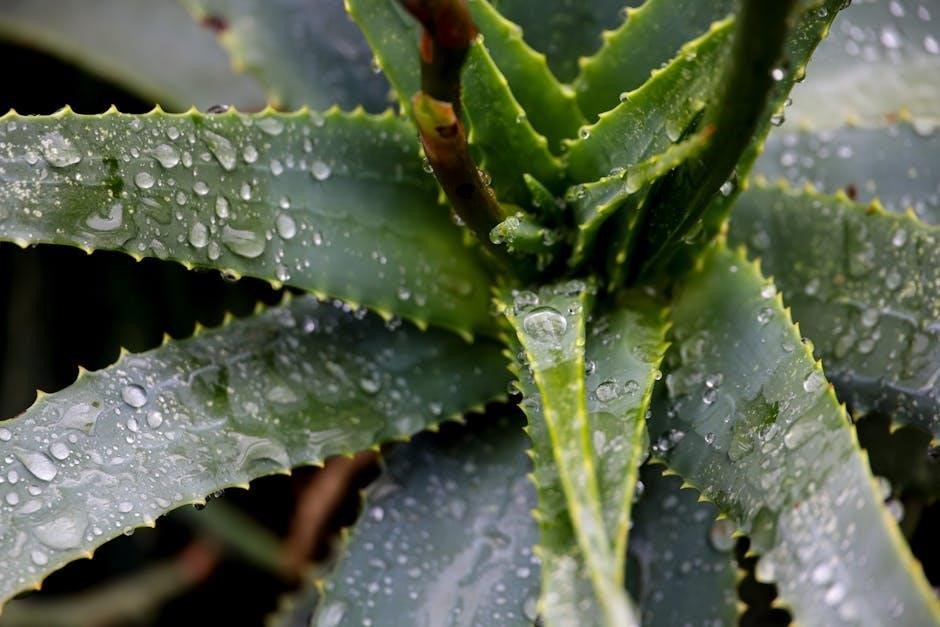
Yewberries are extremely poisonous, containing toxic compounds that can be fatal to cats․ Even small amounts can cause severe illness, paralysis, or death․ Medicine cats must exercise extreme caution, as yewberries resemble harmless berries but are highly dangerous․ Recognizable by their bright red color with a black center, they grow on yew plants․ There are no known antidotes, making prevention the only effective measure․ Yewberries have no medicinal use and should be strictly avoided to protect Clanmates from their lethal effects․
Herbal Preparations and Methods
Herbal preparations are vital for medicine cats, offering effective ways to administer remedies․ Common methods include infusions for teas, poultices for wounds, and ointments for skin conditions․
4․1 Infusions: How to Make Herbal Teas
Infusions are a popular method for administering herbs to cats․ To make an herbal tea, dry or fresh herbs are steeped in hot water, then cooled․ Chamomile, dandelion, and burnet are commonly used․ The mixture is strained and can be administered directly or mixed with food․ This method is effective for calming anxiety, aiding digestion, or reducing fever․ Medicine cats often prepare infusions for cats recovering from illness or injury, ensuring they receive the full benefits of the herbs․ Proper preparation is key to maintaining potency and safety․

4․2 Poultices: Application and Effectiveness
Poultices are a crucial tool for medicine cats, used to treat wounds, infections, and skin conditions․ Made by crushing herbs into a paste, they are applied directly to the affected area․ Plantain and chamomile are common choices for their soothing and antibacterial properties․ The paste is often secured with a large leaf to keep it in place․ Poultices are highly effective for drawing out infections, reducing swelling, and promoting healing․ They are particularly useful for injuries that require prolonged treatment, making them a staple in a medicine cat’s herbal arsenal․ Proper application ensures maximum effectiveness and faster recovery for injured cats․
4․3 Ointments: Topical Use for Skin Conditions
Ointments are potent herbal remedies used by medicine cats to treat skin conditions such as burns, scrapes, and insect bites․ Made by mixing crushed herbs like celandine, plantain, or chickweed with animal fat, they provide long-lasting relief․ These mixtures are applied directly to the affected area, offering soothing and protective benefits․ Ointments are particularly effective for minor wounds, reducing inflammation and preventing infection․ They are also used to calm irritated skin, making them a versatile tool in a medicine cat’s kit․ Proper preparation ensures their effectiveness, helping cats recover quickly and maintain their strength for Clan duties․

Advanced Herbal Mixtures
Advanced herbal mixtures combine multiple plants for enhanced effects, such as boosting strength or reducing fever․ These blends require precise measurements and expert preparation for optimal results․
5․1 Traveling Herbs: Mixtures for Strength and Endurance
Traveling herbs are essential for cats on long journeys, combining plants like daisy leaves, sorrel, chamomile, and burnet․ These mixtures suppress hunger and boost energy, aiding endurance․ Medicine cats prepare them by mixing fresh leaves and petals, ensuring the blend is potent․ Feeding traveling herbs before a journey prevents fatigue and strengthens the cat․ They are also used during migrations or when exploring new territories, making them a vital part of a Clan’s survival tactics․ Proper preparation ensures safety and effectiveness, sustaining cats during their travels․
5․2 Fever-Reducing Mixtures: Combining Herbs for Effectiveness
Fever-reducing mixtures are crucial for treating sick cats, combining herbs like borage leaves, burnet, and thyme․ Borage lowers fever, while burnet adds strength․ Thyme calms nervousness and aids recovery․ Medicine cats crush the leaves and mix them with water or chew them into a pulp for easy consumption․ Willow bark, known for its pain-relieving properties, is often added to enhance effectiveness․ These mixtures are used under close supervision to ensure proper dosage and avoid side effects․ Regular administration helps reduce fever and supports recovery, making it a vital remedy in a Clan’s medicine chest․
This guide provides a comprehensive overview of herbs in the Warrior Cats universe, emphasizing their importance in healing and maintaining Clan health․ Medicine cats play a vital role in understanding and applying these natural remedies safely․ From fever-reducing mixtures to wound-healing poultices, the responsible use of herbs ensures the well-being of all Clanmates․ Always prioritize caution with poisonous plants like deathberries and yewberries․ By mastering these herbal practices, medicine cats can effectively treat illnesses and injuries, upholding their crucial role in their Clan’s survival and prosperity․ This guide serves as a valuable resource for both experienced and aspiring medicine cats․
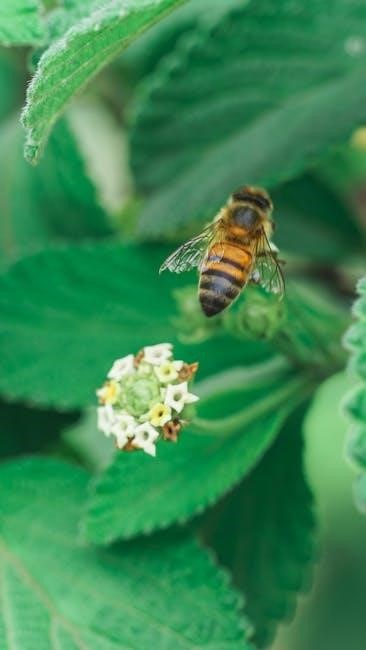
Leave a Reply
You must be logged in to post a comment.